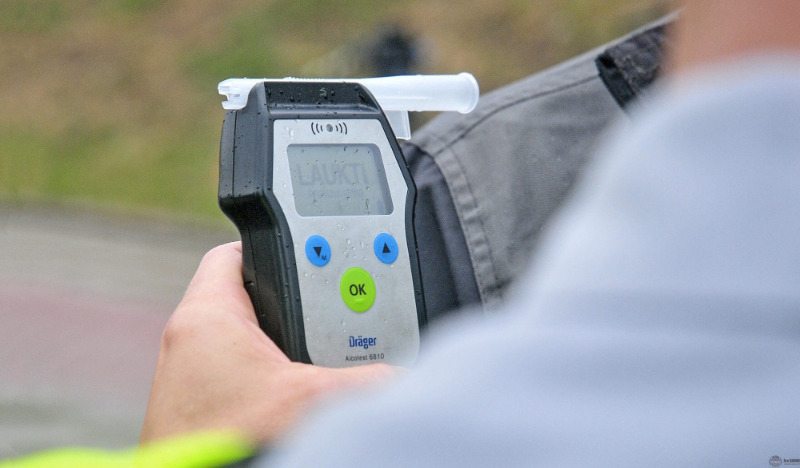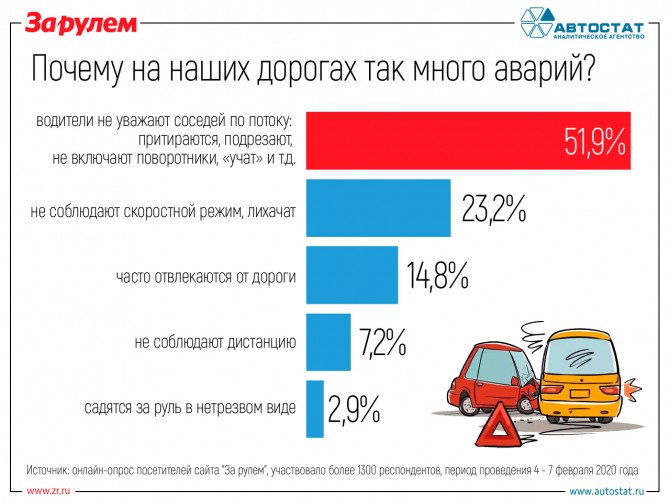6 alcohol myths: how exactly you can’t fool the inspector’s breathalyzer
Content
Since the appearance in the arsenal of the traffic police of a device capable of detecting the presence of alcohol in the body, motorists have been wondering if there are effective ways to deceive a breathalyzer and is it possible in principle to influence its readings? Let's talk about the main misconceptions associated with this device.

A tool like Antipolizei
It should be noted right away that a magic pill has not yet been invented that can eliminate the consequences of a drunken feast. Widely advertised drugs from the category of "Anti-Policeman" or "Alco-Seltzer", supposedly capable of removing alcohol from the body in a couple of hours, in reality have a similar effect to ordinary aspirin.
These drugs contain vitamins, flavorings and components that relieve headaches, so they only level the symptoms of a hangover, but do not affect the level of ethanol in the blood and, accordingly, the readings of the breathalyzer.
Ventilation
On the forums of car enthusiasts, you can often find advice on how to reduce breathalyzer readings using hyperventilation. It is believed that alcohol vapors will mix with the surrounding air, which will certainly reduce the amount of ppm.
There is some truth in this. Several forced breaths and exhalations taken immediately before testing really reduce the breathalyzer readings by 10-15%. The main drawback of this method is the difficulty in implementation. Doing suspicious breathing exercises under the watchful eye of a servant of the law is an extremely unreasonable undertaking.
Of course, some tricksters advise coughing before blowing into a tube, but do not forget that experienced traffic police inspectors are also well aware of such tricks and may require re-testing.
Exhale through the tube
Perhaps, a few years ago, in the dark, such a technique could have worked, of course, if you had been stopped by a not too vigilant inspector. However, all modern breathalyzers are prudently equipped with a special system that controls the continuity of exhalation.
Simply put, if an unscrupulous motorist blows too weakly into the tube or even exhales past it, an unpleasant squeak will immediately be heard, and the message “exhalation is interrupted” or “the sample is insufficient” will appear on the display of the device. This method will not only not help to deceive the breathalyzer, but in an instant will reveal your trick to an attentive traffic police officer.
Drink half a glass of any vegetable oil
Equally well known is the advice of ingesting vegetable oil to reduce blood alcohol content. It should be noted that there is some truth in this too. The oil has an enveloping effect on the mucous membranes of the digestive organs, slowing down the flow of alcohol into the systemic circulation. However, it will be effective only if a small amount of alcohol is taken at once, and the driver has time to get home within 30 minutes.
It is important to consider that this method is absolutely useless if you take vegetable oil after drinking, because vegetable fats will only slow down the absorption of ethyl alcohol from the stomach into the blood, but this will not affect the result of measuring the breathalyzer.
The dosage of vegetable oil deserves special attention. Often there are recommendations to drink it in half a glass, but such an amount can provoke an attack of diarrhea in the driver, and he will not drive at all. In general, this method is unlikely to help reduce the number of ppm and fool the breathalyzer.
Take a bath before the trip
Such advice can be considered not only ineffective, but also dangerous to health. An increased level of alcohol in the blood, combined with high temperatures, puts an excessive strain on the heart, which can lead to a deterioration in well-being even in a healthy person, and if there are pathologies in the cardiovascular system, the risk of serious consequences increases significantly.
In fairness, it should be noted that in the case of a mild degree of intoxication, staying in a bath or sauna really speeds up the process of removing alcohol markers from the body due to intense sweating. At the same time, the steam room should be very hot so that you can stay there for no longer than 5 minutes, washing off the released sweat after each entry. This procedure is quite long in time, because it will take about 0,5-1,5 hours to remove the alcohol contained in only 2 liters of a low-alcohol drink. Perhaps such a mild effect of the bath is not worth spending a lot of time and risking your own health.
Eat something smelly
This is the most hopeless way, given that alcohol vapors come from the lungs, and not from the stomach. However, despite this, there are many tips describing eating onions and garlic, chewing coffee beans and parsley leaves, lavrushka. All this has only a camouflage effect, that is, it interrupts the characteristic smell of alcohol, but it absolutely does not affect the result of the breathalyzer test.
There are also recommendations to use special deodorants for the oral cavity, which in fact can also increase the readings of an inexorable device, because many breath-freshening sprays contain ethyl alcohol.
A fairly effective way to slightly reduce the amount of ppm is considered to be a cup of the strongest espresso, drunk immediately before testing, however, to do such a trick in front of the traffic police inspector, to put it mildly, is difficult. Chewing dried fruits of cloves or cinnamon can really eliminate the smell of fumes and thus lull the vigilance of the sentry, but wrapping a breathalyzer around your finger will definitely not help. But the use of the aforementioned onions and garlic in combination with fumes will provide a stunning aroma that will only alert the traffic police officer. It is better not to tempt fate and not trust these old-fashioned methods.
In practice, it has been repeatedly proven that none of these tricks work. So the surest way to avoid high ppm levels is not to drive at all, even if you seem to be drinking a little. Remember that the breathalyzer is not an enemy that must be deceived, but a high-precision and impartial device that helps stop a negligent motorist and prevent a possible tragedy on the road.
